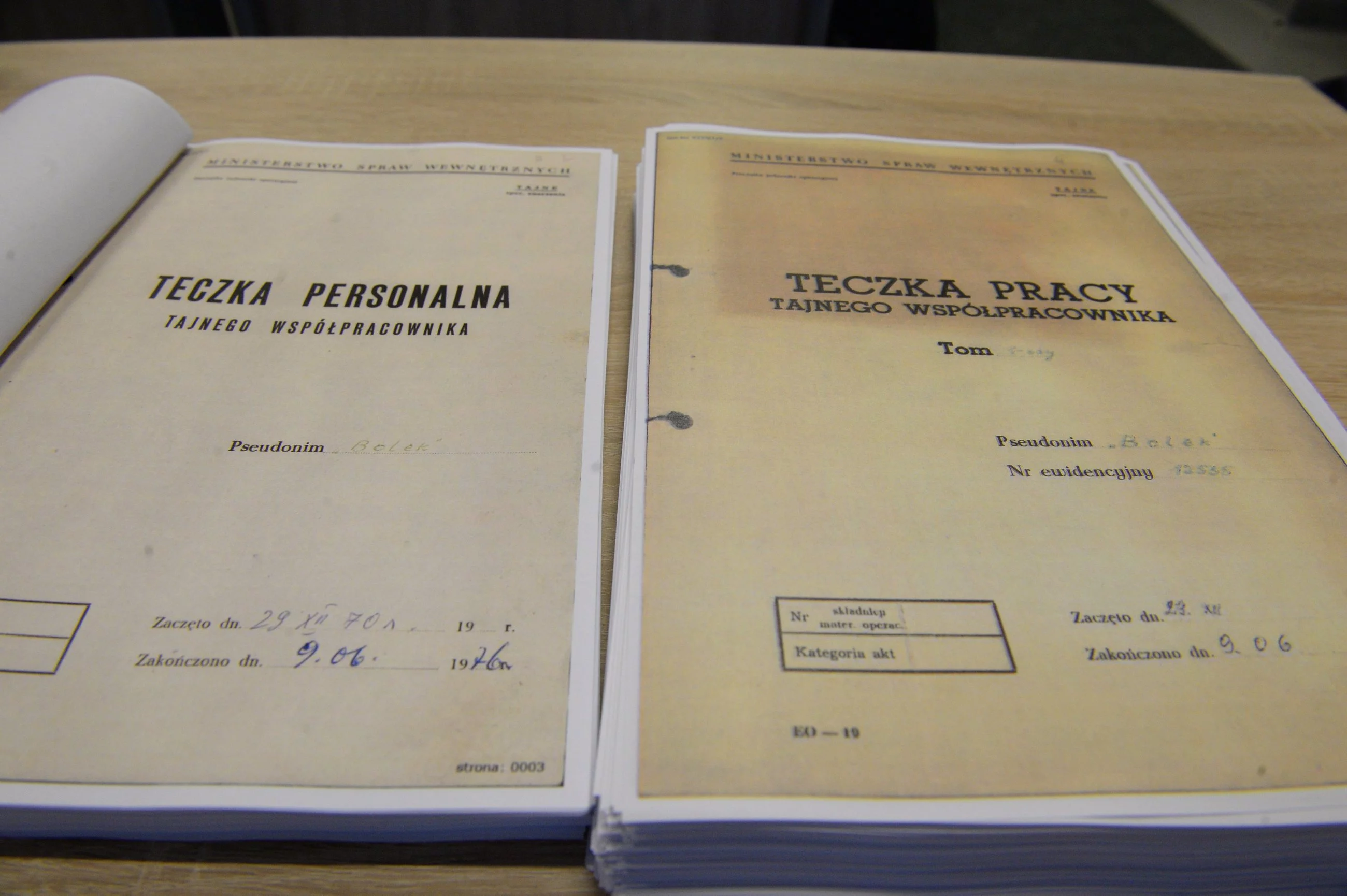Description of the facts
A.M. and J.P. were accused of having, acting jointly and in agreement, in the performance of their pre-emptive intention to get ownership of the property, made its sale on the basis of the power of lawyer granted, resulting in the failure of ownership of the property by W.Z., i.e. the offence with Article 286(1) of the KK in the mention to Article 12(1) of the KK.
District Court of C. in judgement of 13.12.2022, II K 547/21 found the suspect A.M. for the guilty act of Article 284(1) of the KK and sentenced him to a punishment of 1 year and 10 months of imprisonment, the execution of which he suspended conditionally for a trial period of 3 years, and fined 300 regular units, setting the amount of 1 regular rate of PLN 15. And the suspect J.P. He acquitted of committing an alleged act.
An appeal to the detriment of both defendants, bringing a full appeal against the judgment, was made by the prosecutor, who accused the judgement of mistake in the factual findings adopted as the basis of the judgement and thus affecting its content.
The Prosecutor requested that the judgement under appeal be set aside in its entirety and that the case be referred to the Court of First Instance for review.
Defendant of the accused A.M., by appealing the judgement in its entirety, the contested judgement alleged a gross insult to the provisions of the proceedings having a material effect on the content of the judgment, namely Article 17(1)(6) of the NCP and Article 17(1)(10) of the NCP.
Following the examination of the appeals brought, the territory Court of K. in judgement of 29.1.2024, IV Ka 599/23, annulled the contested judgement and referred the case to the territory Court of C. for re-examination.
Complaint of the judgement brought by the suspect A.M. dismissing the judgement as an insult to the provisions of the proceedings, i.e. Article 437(2) second conviction of the NCP.
In consequence to the complaint, the prosecutor filed for her dismissal as manifestly unfounded.
The ultimate Court, after examining the defendant's complaint, overturned the suspect A.M. and referred the case to the territory Court of K. for re-examination.
Reasons for SN
According to the ultimate Court, brought by the defendant's attorney A.M. the complaint deserves to be taken into account.
In accordance with the applicable rules, an appeal against a judgement of the appeal court withdrawing a judgement of the court of first instance may be brought solely due to a breach of Article 437 of the NCP or due to a breach of Article 439(1) of the NCP (Article 539a(3) of the NCP). Pursuant to Article 437(2) of the NCP, the repeal of the judgement and the referral of the case for re-examination may only take place in the cases referred to in Article 439(1) of the NCP, Article 454 of the NCP, or where it is essential to carry out the full cord again. It is clear from the link between the content of that provision and the content of Article 539a(3) of the NCP that ‘The ultimate Court, erstwhile examining the judgement of the appeal court, is limited to examining whether, at the phase of the proceedings before the Court of First and Second Instance, there is simply a alleged absolute appeal cause, or the judgement has been abrogated despite the absence of the formal obstacles referred to in Article 454 of the NCP to issue a amending judgement or whether it is essential to carry out the full judicial procedure. These rules so clearly state that, in order for the ultimate Court to be able to respond to the pleas raised in the action, the justification of the judgement of the appeal court should be so formulated as to consequence clearly, which, on the basis of the conditions laid down in Article 437(2) of the CRS, was the basis for the repeal of the judgement of the Court of First Instance and the transfer of the case to that court for review" (see, inter alia, the judgments of the ultimate Court of 16.11.2017, II KS 3/17, Legalis, 14.3.2018, IV KS 4/18, Legalis and 15.9.2021, II KS 21/21, Legalis).
It follows from the facts of the case in question that the basis for the decision of the territory Court to dismiss the suspect A.M. was Article 437(2) of the NCP and the request to re-conduct the cable in its entirety.
The Court of Appeal found the position of the territory Court to be incorrect in uncovering that the defendants at the time of the conclusion of the debt agreement with 15.12.2000 V.Z. acted with the intention of bringing to an unfavourable regulation assets and accepting that A.M. he has only committed a misappropriation of the property law, i.e. an offence with Article 284(1) of the KK. The Court of First Instance examined and assessed the evidence of the witness on the basis of its ruling M. W., the victim V.Z. and extensively analysed the provisions of civilian law on the annulment of a legal act contrary to the law, the social coexistence clause, the debt agreement of 15.12.2000 itself, concluded by V.Z. with the company “Debt loans and real property brokerage J.P.” and the power of lawyer given that day by the victim A.M. (in the form of a notarial act).
The territory Court did not take into account, in the view of the territory Court, that both the power of lawyer and the debt agreement of 15.12.2000 were contrary to the principles of social coexistence and were invalid from the law itself, which they knew without uncertainty A.M., J.P. and M. W. In his opinion, he argues that they were professionals, professionally struggling to enter into mortgage agreements, including mortgages, and besides ran a company (J. P., A.M.). At the same time, he noted that the territory Court did not take into account in any way how the victim had signed a debt agreement and the power of lawyer and the fact that he was harmed by an uneducated individual who was not professionally employed, who was liable for raising and caring for 5 insignificant children, who had been completely uninformed of the contract and giving power of attorney, and, having religion in her testimony, did not draw the right conclusions from them.
The appeal court besides held that the Court of First Instance meriti he has committed an mistake in the factual findings and the evidence collected in the case, assessed in accordance with the directives of Article 7 of the NCP, gives grounds to believe that both defendants have exhausted the nature of the offence under Article 286(1) of the KK.
In the indications on the continuation of the procedure, the Court of First Instance stressed that, erstwhile again, meriti carry out the full evidence and the evidence collected shall assess, taking into account the directives of Article 7 of the NCP.
As it is easy to see, the trial situation of both defendants was different. 1 of them was acquitted, so, erstwhile convinced of the request to delegate him work for the alleged act, the obstacle to his conviction in appeal proceedings was Article 454(1) of the NCP, which at the same time constitutes the legal basis for issuing a cassatory judgment. The second of the defendants, A.M., was found guilty by the territory Court to have committed an act under Article 284 §1 KK, although according to the territory Court, in fact by its action, which was raised in the prosecutor's appeal, fulfilled the signs of fraud in the basic type. With respect to this defendant, the basis for the judgement of cassatory may have been the existence of an absolute reason for appeal, to which the Court of First Instance does not trust or the request for a re-trial.
In conclusion, the current model of the appeal procedure, taking into account the provisions of Article 437(2) of the NAP, does not prevent the court of appeal from issuing a improvement decision, justified by the evidence collected and its assessment. The position does not change the fact that the 2 defendants, in the frame of the indictment, acting jointly and in agreement, to which the Court of Appeal relies, for each of them shall be individually liable for their conduct.
In view of the above, it had to be considered that the action brought pursuant to Article 539a(1) of the NCP was justified due to the fact that there were no grounds for repealing the judgement of the territory Court.
Comment
To full divide the position of the ultimate Court expressed in the thesis (headnote) that the circumstances in the case in question had not been updated to require that the proceedings before the territory Court be carried out in full. According to the rules of appeal presently in force, the appeal court, in principle, should issue a substantive decision, not a cassatory decision after the appeal has been brought. This entails the work of that court to conduct evidence, to measure evidence and to carry out legal analysis and, consequently, to issue improvement decisions, subject to a regulation on the content of Article 454(1) of the NAP.
Judgment of the ultimate Court of 4 December 2024, III KS 46/24, Legalis
















